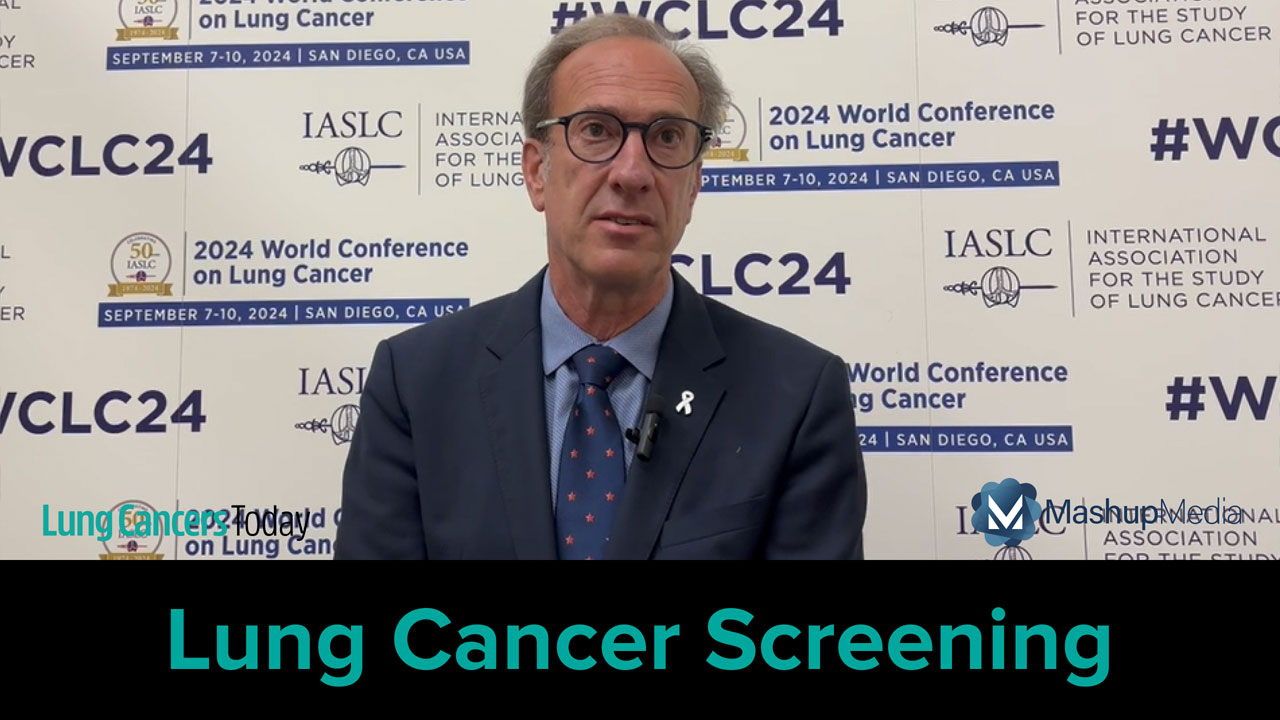Dr. Gadgeel on Updated MARIPOSA Results at IASLC 2024 World Conference on Lung Cancer
By Shirish M. Gadgeel, MD, Cecilia Brown - Last Updated: September 9, 2024Shirish M. Gadgeel, MD, Chief of the Division of Hematology/Oncology at the Henry Ford Cancer Institute in Detroit, speaks about the update to the MARIPOSA study he presented at the IASLC 2024 World Conference on Lung Cancer in San Diego, California.
Dr. Gadgeel delivered the presentation, titled “Amivantamab Plus Lazertinib vs Osimertinib in First-line EGFR-mutant Advanced NSCLC: Longer Follow-up of the MARIPOSA Study,” during the “Redefining First-Line EGFR Therapy” session at the meeting.
“What this longer follow-up has shown is that the efficacy data continues to favor amivantamab plus lazertinib over osimertinib as first-line treatment of common EGFR mutation-positive advanced non-small cell lung cancer,” he said, noting that amivantamab plus lazertinib was recently approved for the first-line treatment of EGFR mutation-positive advanced NSCLC based on data from MARIPOSA study.
At 24 months, 75% of patients receiving amivantamab plus lazertinib were still alive, compared with 70% of patients receiving osimertinib. At 36 months, 61% of patients receiving the combination remained alive, compared with 53% of those receiving osimertinib.
“This is a very opportune time for this presentation,” he said. “It’s 20 years since EGFR mutations were identified as a driver [of] genetic alteration in lung cancer. And over the last 20 years, several advances have occurred that have led to improved outcomes of patients with EGFR mutation-positive lung cancer. However, there remains a lot to be done.”
Dr. Gadgeel explained that for the past 7 years, third-generation EGFR tyrosine kinase inhibitors (TKIs), such as osimertinib, have been used as a first-line treatment for patients who have EGFR with Ex19del and exon 21 L858R mutations.
“This has shown a median survival of approximately 3 years with an estimated real-world 5-year survival of less than 20%,” he said. “Even though these are clearly better outcomes than with the treatments we had in the past, there is a great need to have better treatments that can provide even improved outcomes than what we see with drugs like osimertinib, and it is in that regard that MARIPOSA study was conducted that evaluated a combination of amivantamab, which is EGFR-MET bispecific antibody, but in addition, it also has immune cell directing activity.”
In the primary analysis of the phase 3 MARIPOSA study, amivantamab plus lazertinib significantly improved progression-free survival (PFS) compared with osimertinib in patients with treatment-naïve, EGFR-mutated advanced NSCLC, with a median follow-up of 22 months.
Dr. Gadgeel’s presentation at the IASLC 2024 World Conference on Lung Cancer featured updated data, with a median follow-up of 31.1 months.
“What this update demonstrated was that amivantamab plus lazertinib demonstrated improved intracranial progression-free survival with a hazard ratio of 0.82.”
The 3-year intracranial PFS rate was 38% in those receiving amivantamab plus lazertinib, compared with 18% in those receiving osimertinib.
“In addition, though the response intracranial response rates were the same in the 2 arms at 77%, the median intracranial duration of response was not reached with amivantamab plus lazertinib, whereas it was 24.4 months in patients treated with osimertinib,” Dr. Gadgeel said.
With 3 years of follow-up, 40% of patients receiving the combination therapy continued to receive treatment with amivantamab plus lazertinib.
“Whereas that percentage was 29% in patients who were treated with osimertinib and the time to subsequent treatment was also prolonged,” Dr. Gadgeel said. “At 3 years, of the patients who had started on osimertinib, only 32% stayed [and] were not switched to subsequent treatment, whereas that percentage was 45% in the patients who started on amivantamab plus lazertinib.”
In addition, the data showed a “trend to improved overall survival favoring amivantamab plus lazertinib,” Dr. Gadgeel said, explaining that the median OS was not reached with amivantamab plus lazertinib, compared with 37.3 months among patients treated with osimertinib.
Dr. Gadgeel concluded by reflecting on the implications of the study and all who participated in the research.
“This updated efficacy assessment demonstrated that amivantamab with a unique mechanism of action combined with lazertinib continues to show improved outcomes in this patient population as compared to osimertinib,” Dr. Gadgeel said. “This study enrolled 1,074 patients from 27 participating countries, so we really want to thank and acknowledge all the patients who participated in this study and their family and caregivers.”







 © 2025 Mashup Media, LLC, a Formedics Property. All Rights Reserved.
© 2025 Mashup Media, LLC, a Formedics Property. All Rights Reserved.